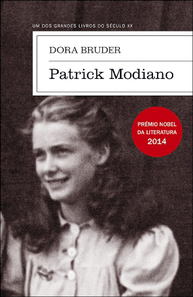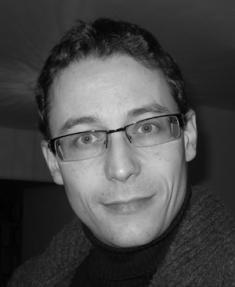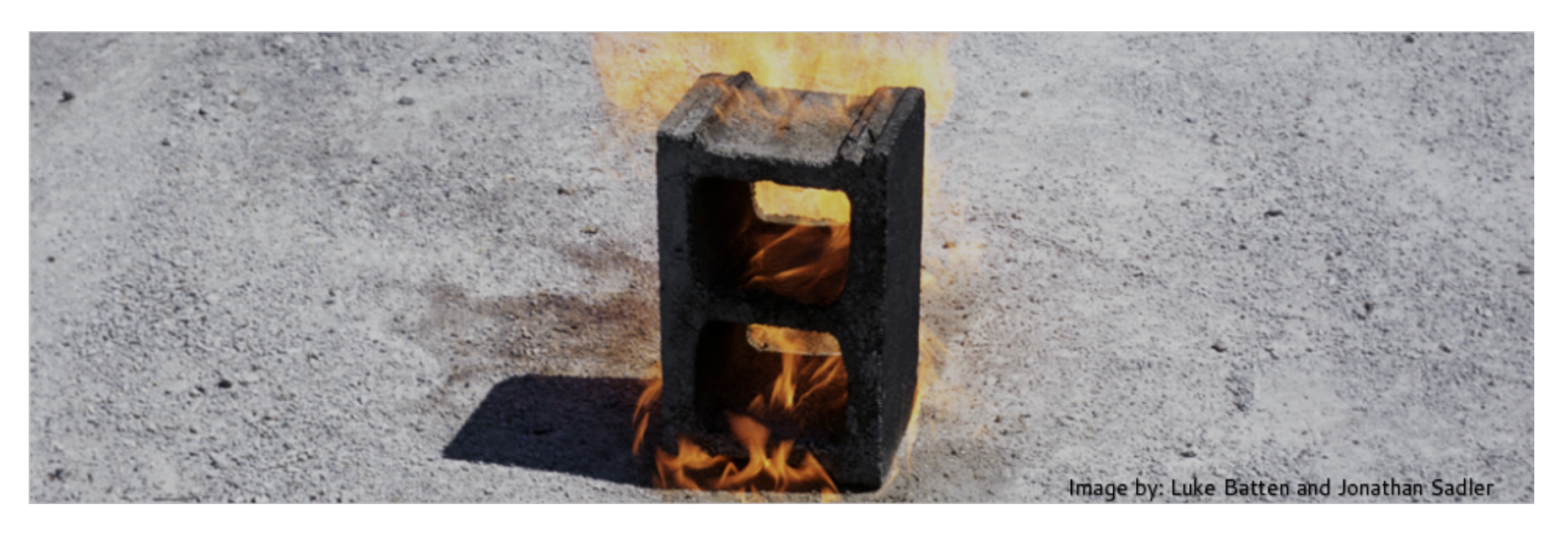On October 19th, 2016, the Program in Jewish Culture & Society and the Department of French and Italian received the visit of Maxime Decout,
Maître de conferences at the University of Lille 3 in France, and author of three books on the following topics: Albert Cohen, Writing Judaism in French Literature, and Bad Faith in Literature
[1]. His visit focused on French author, and 2014 Nobel Prize recipient, Patrick Modiano. Decout is the editor of the special issue dedicated to Patrick Modiano of the journal
Europe and published articles on Modiano, among other numerous publications on Albert Cohen, George Perec, Romain Gary, and Judaism in French literature
[2].
 A leading figure of contemporary French literature, Patrick Modiano’s reception of the Nobel Prize in 2014 came to the surprise of the American media and readership, despite the author’s literary fame in Europe. The relatively restrained circulation of Modiano’s work in North America before the reception of his Nobel compared to his European success might be due to the topographic nature of his works, which follow the paths of characters through Paris’s sinuous streets, evoking the social background of characters by mentioning the name of neighborhoods in passing, and inviting the reader to tap into his own knowledge of the places evoked. The serpentine nature of the Parisian landscape that echoes the meandering of memory evoked by Modiano’s novels might more intuitively translate culturally to European readers than to Americans more used to the grid system of American city planning.
A leading figure of contemporary French literature, Patrick Modiano’s reception of the Nobel Prize in 2014 came to the surprise of the American media and readership, despite the author’s literary fame in Europe. The relatively restrained circulation of Modiano’s work in North America before the reception of his Nobel compared to his European success might be due to the topographic nature of his works, which follow the paths of characters through Paris’s sinuous streets, evoking the social background of characters by mentioning the name of neighborhoods in passing, and inviting the reader to tap into his own knowledge of the places evoked. The serpentine nature of the Parisian landscape that echoes the meandering of memory evoked by Modiano’s novels might more intuitively translate culturally to European readers than to Americans more used to the grid system of American city planning.
Modiano’s success is due largely to the singularity of his approach. In the midst of instant communication and flash news, Modiano proposes novels which posit the void, and the enigma, as value. Maxime Decout started his visit with a workshop on Modiano’s best known, and most accessible, novel
Dora Bruder. The novel follows a narrator, an apparent double of the author himself, a teenage Jewish runaway living in Paris during the Occupation. The novel’s artfulness lies in the way it engages the reader, proposing a narrative permeated with silence, restraint, and interrogation that leads the reader to piece together clues both about Dora herself, and about the lived experience of Jews in occupied France.
Maxime Decout
 A specialist of Judaism and Jewish identity in French literature, Decout highlighted the absence of an identifiable Jewish literature category in France. While there are French Jewish authors, and while some of them might write about Jewish identity, Jewish History, or Jewish protagonists, Decout pointed out that unlike in American literature, there is no "French Jewish" canon. Modiano might write about the Jewish runaway Dora, but he can also be described as a writer of the occupation period, a writer of Paris and its suburbs, or a writer of silence. Yet, the Occupation period recurs obsessively in Modiano’s work with many of his novels echoing each other through recurring scenes, anecdotes, or motifs such as phone books listing names and addresses, photographic portraits, and suitcases (tacitly alluding to the Holocaust). Born in 1945 to a Sephardic Jewish father and a gentile Belgian mother, Modiano’s own Jewish identity remains a constant questioning on inheritance best apprehended through his body of works.
A specialist of Judaism and Jewish identity in French literature, Decout highlighted the absence of an identifiable Jewish literature category in France. While there are French Jewish authors, and while some of them might write about Jewish identity, Jewish History, or Jewish protagonists, Decout pointed out that unlike in American literature, there is no "French Jewish" canon. Modiano might write about the Jewish runaway Dora, but he can also be described as a writer of the occupation period, a writer of Paris and its suburbs, or a writer of silence. Yet, the Occupation period recurs obsessively in Modiano’s work with many of his novels echoing each other through recurring scenes, anecdotes, or motifs such as phone books listing names and addresses, photographic portraits, and suitcases (tacitly alluding to the Holocaust). Born in 1945 to a Sephardic Jewish father and a gentile Belgian mother, Modiano’s own Jewish identity remains a constant questioning on inheritance best apprehended through his body of works.
We thank Dr. Decout for his superb talk and workshop, and pledge to follow Modiano’s footsteps in our continuous engagement with memory and literature.
[1] -
Albert Cohen : les fictions de la judéité, Paris, Classiques-Garnier, « Etudes de littérature des XXe et XXIe siècles », 2011, 371p.
– Écrire la judéité. Enquête sur un malaise dans la littérature française, Seyssel, Champ Vallon, « Détours », 2015.
–
En toute mauvaise foi. Sur un paradoxe littéraire, Paris, Éditions de Minuit, « Paradoxe », 2015.
[2] The exhaustive list of Dr. Decout’s publications can be found at
http://alithila.recherche.univ-lille3.fr/index.php/contacts/decout-maxime/ 
